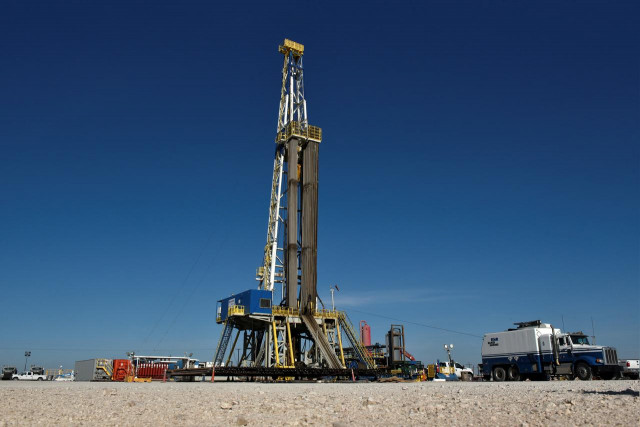Oil hits lowest this century as coronavirus hammers demand
Glut has been building since OPEC+ failed to renew output cuts last month

Glut has been building since OPEC+ failed to renew output cuts last month. PHOTO: REUTERS
A glut has been building since OPEC+, led by Saudi Arabia and Russia, failed to renew output cuts last month. OPEC+ agreed new curbs this month, but government lockdowns to contain the pandemic have cut fuel demand more steeply.
Brent crude, which fell 24% in the previous session, touched $15.98 a barrel, its lowest since June 1999. It was trading down $0.62, or 3.2%, at $18.71 by 0950 GMT.
US West Texas Intermediate was down $0.6, or 5.2%, at $10.97.
“The oil market is in deep trouble and is unlikely to shake off its malaise any time soon,” said Stephen Brennock of oil broker PVM. “Demand is low, supply is high and storage is full.”
The falls follow two of the wildest days in the history of oil trading, with supply looking likely to outstrip demand for months to come. The nearby US contract fell into negative territory for the first time ever on Monday.
“Be prepared for more surprises in this broken oil market,” said Rystad Energy’s Head of Oil Markets, Bjornar Tonhaugen.
Brent’s low on Wednesday takes the price back to a time when OPEC was also tackling a supply glut and business and consumers were concerned - unnecessarily as it turned out - about the Millenium Bug affecting computers after the turn of the century.
In the latest sign of excess supply, the American Petroleum Institute on Tuesday reported that US crude inventories rose by 13.2 million barrels, against analyst expectations for an increase of 13.1 million barrels.
The US government’s official supply report is due later on Wednesday.
In an effort to shore up the market, OPEC+ this month agreed to reduce output by 9.7 million bpd. Other nations, including the United States, have also said they will pump less.
Producers are considering further steps. Saudi Arabia on Tuesday said that it was ready to take extra measures with other producers, though the next formal OPEC+ meeting is not until June.
In a development that raises doubt over a formal US supply cut, two of three Texas regulators on Tuesday delayed a vote to force producers to curtail output, predicting the move would land the state in a legal minefield.



















COMMENTS
Comments are moderated and generally will be posted if they are on-topic and not abusive.
For more information, please see our Comments FAQ